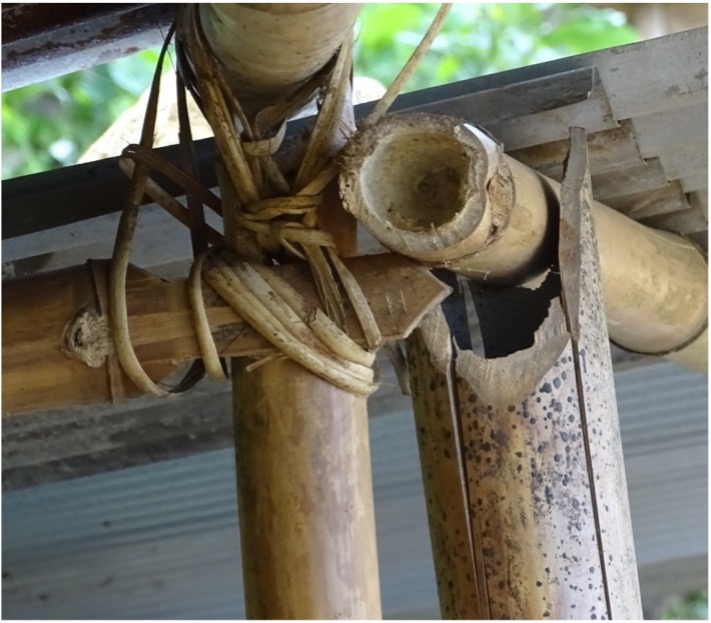The traditional society in PNG has no notion of metal. Up to the mid-20th century metal was largely unknown. Tools were made of wood and stone, materials for joining building structures were made of bamboo or plant fibres. The technology of melting metals is unknown, the traditional profession of a smith does not exist.
Fire is known and serves for cooking. I remember as a young child watching the village women with fascination when they sparked a flintstone and made fire with dry moss, small twigs and finally larger pieces of wood. I also remember how the same women watched with fascination how my parents “magically” produced fire from matches. The “modern technology” of matches was entirely new for the village people of the early 1960s and white people were often attributed with having almost magical powers on basis of their awkward skin colour.
Many “modern technologies” arrived with the colonialists around 1900 and mainly with World War II, including such novelties as screws, nails, hammers, scissors and knives. A civilization that has elapsed the Iron and Bronze Age transitioned immediately from stone axes to electric power drills within the lifetime of a single generation.
Why has a civilization in a country so rich on natural resources such as iron ore, nickel, copper, tin, silver and gold never found, excavated or processed these metals? Instead, there was only hunting and farming, but even without domestic animals.
Exploitation of natural resources happens today: Companies from China excavate metal and gold in large style. They pay the government large one-time amounts for the mining rights in remote mountain areas, transport the ore from the Highlands down to the coast and ship it to their home country. Later, the processed metal products are again re-imported as household equipment, construction materials and vehicles at significantly higher prices. The value creation within Papua-New Guinea is negligible.
Quick money from foreign corporations convinces the government to sell out the mining rights. The consequences of such actions are clearly visible today in lack of “downstream processing” industries, high deficits in the foreign trade balance and massive value drain from the country’s economy.
The multiple missed chances of metal cause high costs to PNG today. The time is now to ensure that the same patterns will not repeat in the Energy sector. That is why the Lutheran Church in remote rural areas takes energy education and production into its own hands through the SolSol project.


Just a thought: maybe it was not necessary enough for the population to “desecrate” the earth in order to obtain metals? The ‘bush’ provided all necessary (renewable!) building materials in abundance. Plus it was more convenient than excavating and using metal ore. An abandoned building would just slowly decompose and disappear into the surrounding nature again.